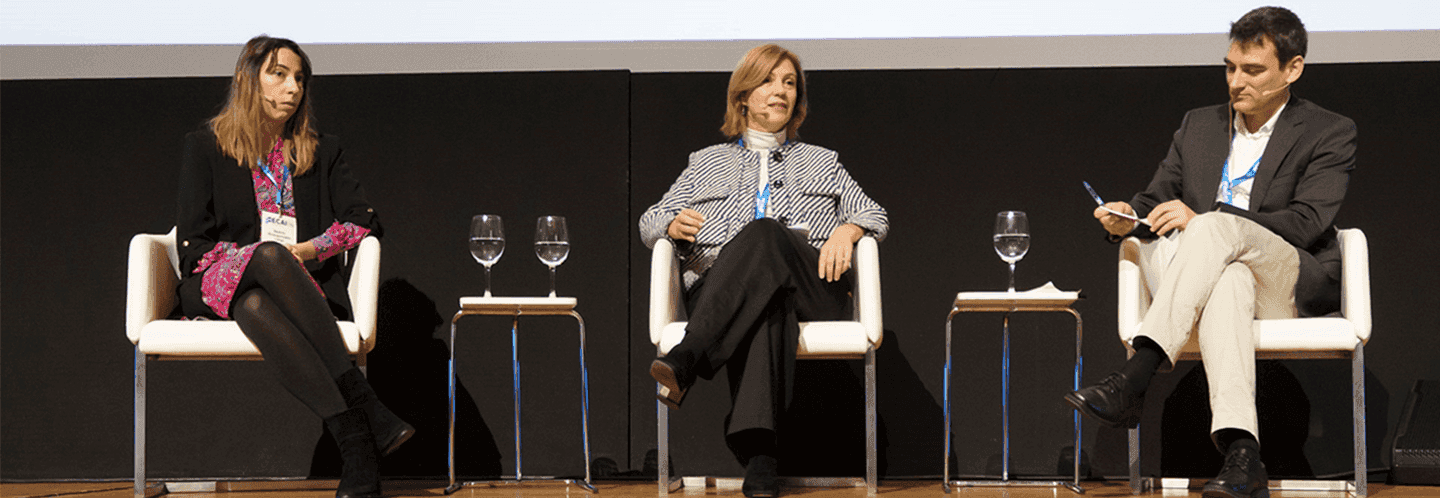
Experts advocate for European AI regulation, but it must be "open" to that of other countries
Experts on Artificial Intelligence (AI) regulation support the European strategy because it takes "people and social perspective into greater account," although they warn that Europe "is not alone in the world," so it must be flexible and "keep the conversation open" as the world and technology are constantly changing.
Experts support the "European perspective" on Artificial Intelligence (AI) regulation because it takes "greater account of people and the social perspective, in addition to technical and security risks," although they warned that Europe "is not alone in the world" and cannot "legislate in just one direction."
During a debate held at the European Conference on Artificial Intelligence (ECAI 2024), which is taking place from October 19 to 24 in Santiago de Compostela, Clara Neppel, Senior Director at IEEE Europe, explained that Europe has "more vertical regulation than other regions," which includes more factors and places greater emphasis on people and the social perspective, in addition to technical or security risks.
However, she warned that "we are not alone in the world and we cannot legislate alone, in just one direction." She also reminded that in other regions, such as the United States, "regulation is very focused on software, influenced by the number of tech companies operating in the country."
As she explained, the European Artificial Intelligence Regulation (AI Act) recognized the need to consider the "impact of technology and provide transparency, quality, and safety." In her opinion, "the new rules will help companies know if the system they are going to implement will be acceptable in the market, as it will need to be analyzed beforehand." Additionally, she highlighted that EU AI standards ensure "inclusion of each individual, protecting their fundamental rights and upholding European values."
Certainty and Stability
For her part, Beatriz Alvargonzález Largo, Economic Advisor to the European Commission, highlighted that much progress has been made in AI over the past four years, but "there is still a long way to go." In her opinion, it is necessary to "provide certainty and stability to the market, with rules that can be applied without limiting innovation."
She argued that the new regulation "is not aggressive for the market or the development of new products, but rather offers a regulatory framework that harmonizes and provides stability." This helps companies continue developing and innovating, while offering security to consumers, one of the main objectives of the AI Act", she added.
However, she warned that European regulation must have a "flexible character" because the market has changed, the world has changed, and technology continues to develop." Therefore, it is necessary to "be flexible and keep the conversation open."
Trustworthy
Kilian Gross, Head of the Directorate-General for Communication Networks, Content, and Technology of the European Union (CNECT), emphasized that the new regulation "positions Europe as a leader in the debate on AI and contributes to the development and implementation of AI while driving research and innovation in trustworthy artificial intelligence."
In his speech, Gross highlighted the European Union's efforts to "create trustworthy AI" through the European Artificial Intelligence Regulation (AI Act), by "regulating the safety" of products (risks to health, safety, and fundamental rights), as well as focusing on "AI systems and the risks they generate"; on the "building of trust" throughout the value chain; and on promoting "responsible innovation."
"The European regulation proposes a risk-based approach, analyzing risks that would be considered unacceptable and identifies a limited group of particularly harmful AI practices that will be banned, such as those manipulating people with subliminal techniques." "High-risk systems, such as emotion recognition or critical infrastructure systems, as well as those used for analyzing and evaluating candidates in job recruitment processes, will have to comply with certain rules," he added.
ECAI 2024
The European Conference on Artificial Intelligence (ECAI 2024), held from October 19 to 24 in Santiago de Compostela, brings together more than 1,600 delegates representing the global elite in Artificial Intelligence research. The event, sponsored by the European Association for Artificial Intelligence (EurAI), the Spanish Society for Artificial Intelligence (AEPIA), and organized by CiTIUS (Singular Research Center in Intelligent Technologies at the University of Santiago de Compostela - USC, co-funded by the European Union through the Galicia ERDF 2021–2027 programme) includes an extensive program featuring the presentation of the latest scientific results, conferences, panel discussions, workshops, and demonstrations to highlight the contribution of AI to societal development.
ECAI 2024, with the theme "Celebrating the Past. Inspiring the Future", marks the 50th anniversary of the first European AI conference held in Brighton in 1974. This is the second time the European Conference on Artificial Intelligence has been held in Santiago de Compostela, following the 2020 conference, which took place during the COVID pandemic and had to be converted to an online format, becoming a fully digital pioneering event worldwide.
This edition sets a new record, both in the number of papers presented, which exceeds five hundred, and in the number of attendees and the significance of its content. Undoubtedly, all of this has made Santiago de Compostela the world capital of artificial intelligence during the week of October 19-24.